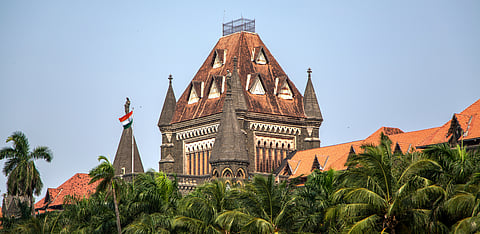

There is no consistency in the position taken by the Supreme Court and high courts in such cases. While some courts have expressed that POCSO Act should not criminalise young love, other courts take a stricter position of law.
—
RECENTLY, the High Court of Bombay granted bail to a 26-year-old applicant accused of raping a 13-year-old girl.
Justice Urmila Joshi-Phalke held that the alleged incident of sexual relationship was "out of the attraction" between the two young persons. Thus, she held that the present case was not the one where the applicant had subjected the victim to a sexual assault out of lust.
A first information report was registered in 2020 against the applicant accused of committing offences punishable under Sections 363 (punishment for kidnapping), 376 (punishment for rape), 376(2)(n), 376(3) read with Section 34 (acts done by several persons in furtherance of common intention) of the Indian Penal Code, (IPC)1860, and Sections 4 (punishment for penetrative sexual assault), 6 (punishment for aggravated penetrative sexual assault) and 17 (punishment for abettment) of the Protection of Children from Sexual Offences Act, (POCSO) 2012.
The accusations levelled against the applicant were based on a report lodged by the father of a 13-year-old school-going victim. As per the father's complaint, his daughter left the house on August 23, 2020 on the pretext that she is going to get some books from her friend.
However, when she did not return, the father tried to find her. Unable to trace the whereabouts of his daughter, the father lodged a missing person report.
Based on the report, the police began a search which led them to the victim. The victim told the police that the applicant resided in her neighbourhood. She got acquainted with him and he subsequently expressed his feelings towards her. As per the victim's statement, she reciprocated those feelings.
On August 22, 2020, the victim was at her grandmother's house when she received a call on her grandmother's mobile from the applicant asking her to come along with him on the promise of marriage.
The victim told the police that she therefore took gold ornaments and cash from her house and left along with the applicant. They moved from one place to another over the next few days.
On August 29, 2020, the victim received a phone call from her grandmother and other relatives and she disclosed that she was residing in Bengaluru. After the phone call, the victim returned home and gave her statement to the police.
The applicant was arrested on August 30, 2020, and since then he has been in jail. Thereafter, the applicant filed a petition seeking bail under Section 439 (special power of the high court or court of session regarding bail) of the Code of Criminal Procedure, 1973.
Before the high court, the applicant's counsel submitted that despite the victim being young, she had joined the company of the applicant out of a love affair.
The counsel argued that the victim had not made any grievance that the applicant forcefully had sexual intercourse with her. It was also contended that the medical certificates of the victim do not show any external injuries that could indicate that the victim was forced into a physical relationship.
The counsel told the court that the applicant had no intention to commit the breach of the promise to marry.
Based on all these considerations, the counsel for the applicant prayed that bail be granted to the applicant considering that the trial is yet to commence.
The State opposed the bail application on the ground that the consent of the 13-year-old victim was irrelevant in this case.
The chargesheet in this case was filed on October 26, 2020.
The high court perused the materials before it and acknowledged that the consent of the victim was not relevant in this case.
The court considered that the victim had left the house of her own accord on the pretext of bringing a book from a friend and did not return. She joined the company of the present applicant and admitted her love relationship with him in her statement to the police.
The court reiterated that the victim's statement revealed that she stayed along with the present applicant at various places and had not made any grievance to the effect that she was taken by the present applicant by using some force.
In this regard, the court held: "Thus it is apparent that, out of the love affair, she joined the company of the present applicant. The applicant is also of a tender age of 26 years and out of love affair they come together."
Based on this, the court observed that any further incarceration of the applicant would not be required and granted bail.
The law does not provide any exceptions when it comes to the consent of those below the age of 18 years old.
The Supreme Court's judgment in Independent Thought versus Union of India & Anr (2017) read down Exception 2 to Section 375 of the IPC to the extent that it provided that sexual intercourse with a wife between 15 to 18 years of age is not statutory rape.
However, in cases where those below 18 years are involved, the POCSO Act is attracted. The only set of cases under such circumstances for which courts have frequently created exceptions is coming-of-age cases.
In the present case, one of the parties is a minor and there is an age gap of around 13 years between the man and the female child.
There is no consistency in the position taken by the Supreme Court and high courts in such cases. While some courts have expressed that POCSO Act should not criminalise young love, other courts take a stricter position of law.
Many courts have expressed the need for an amendment in the POCSO Act to accommodate such cases.